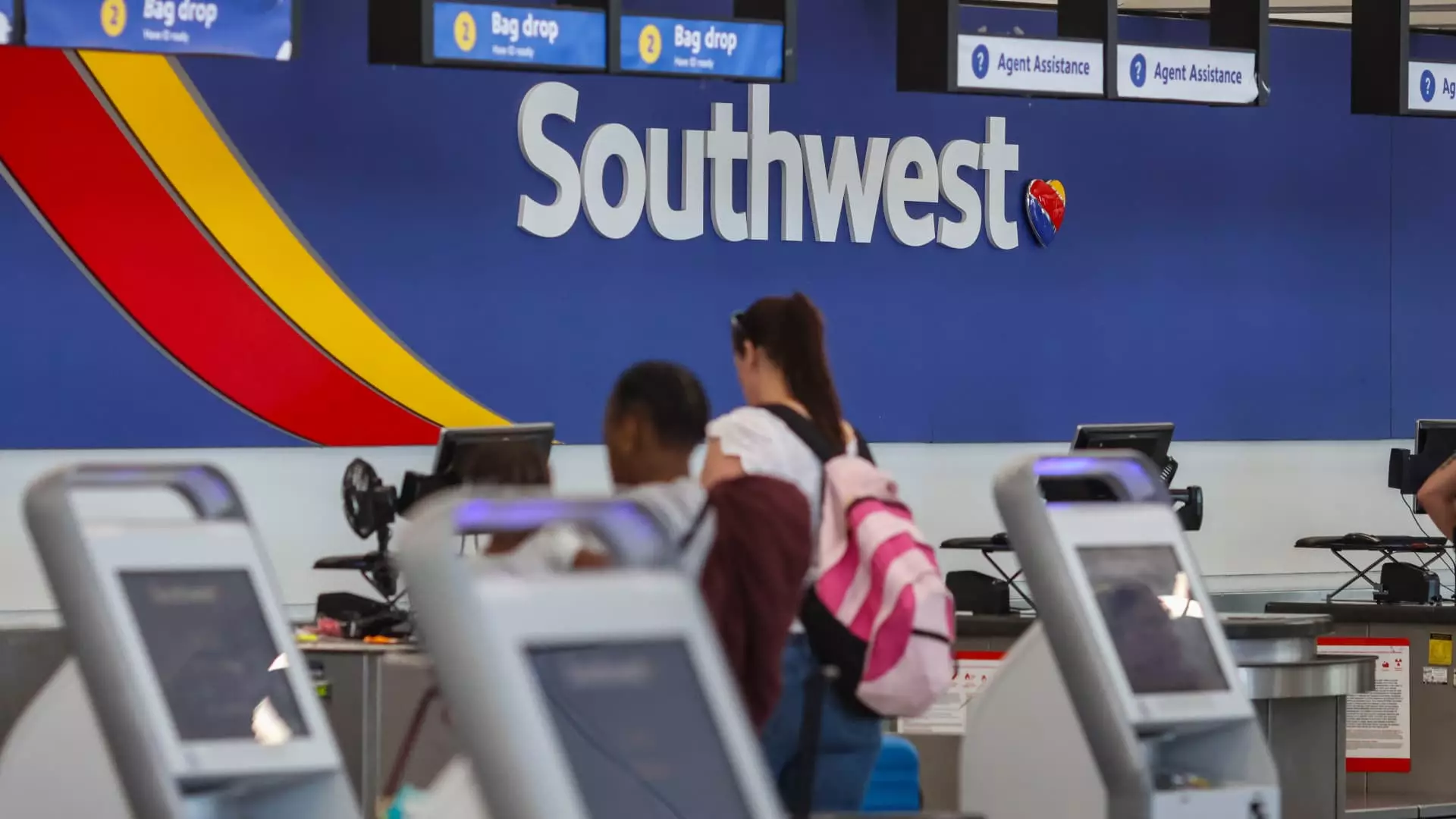In a significant development that underscores the challenges facing the airline industry, Southwest Airlines has announced plans to reduce its operations in Atlanta, a city that serves as a pivotal hub for air travel in the United States. According to a company memo obtained by CNBC, the airline will decrease its personnel in Atlanta by up to 300 positions, including around 200 flight attendants and 140 pilots. While the cuts are substantial, Southwest has assured employees that it is not shutting down its crew base in the city, although it may require them to bid for positioning in other locations.
These forthcoming changes are set to coincide with the airline’s investor day, where top executives are expected to outline their broader strategies for cutting costs and enhancing revenue amidst mounting pressure from activist investors, such as Elliott Investment Management. This context of heightened scrutiny from shareholders adds an element of urgency and complexity to the impending adjustments.
As Southwest narrows its presence from 18 gates to just 11, it will also see a decrease in destinations served from Atlanta, from 37 down to 21 by April 2025. Such reductions illustrate a growing trend within the airline industry, where routes that are no longer profitable are being curtailed or eliminated altogether. This strategy reflects a pragmatic approach to survival in a highly competitive market, particularly in a region dominated by rival airline Delta Air Lines, based at the world’s busiest airport.
In its memo, Southwest emphasized that these changes are not a reflection of its employees’ performance but rather a necessary measure to restore profitability, a sentiment that echoes the broader struggles experienced by many airlines in a post-pandemic recovery landscape. Although employees will not face immediate layoffs, the prospect of re-bidding for positions in different locations adds uncertainty to the workforce, potentially affecting morale and operational efficiency.
In light of these changes in Atlanta, Southwest has not only opted to scale back its presence but also to expand its service in more strategically advantageous markets. For instance, the airline has announced an increase in routes to and from Nashville, Tennessee, alongside the introduction of overnight flights from Hawaii to major mainland cities like Las Vegas and Phoenix. This dual approach of cutting back in one area while increasing service in another exemplifies a strategic pivot aimed at maximizing resource utilization and meeting growing customer demands.
An official statement from Southwest pointed to ongoing efforts to optimize their network as a response to evolving booking patterns and operational challenges, which includes addressing delays stemming from lingering issues with Boeing’s yet-to-be-certified 737 Max 7 airplanes. These hurdles reveal the intricate balance airlines must navigate between fleet management and customer service.
The operational changes planned by Southwest Airlines signal a transformative phase in its approach to both services and customer expectations. Recently announced modifications include a move away from open seating on flights, a staple of Southwest’s ethos since its inception. The introduction of extra legroom seats underlines a broader commitment to enhance passenger experience while grappling with profitability pressures.
Finally, the current situation encapsulates a larger narrative about the future of air travel. As airlines like Southwest adapt to the fast-evolving travel landscape, the effective management of service routes and crew operations will likely dictate competitive success moving forward. With both immediate and long-term strategies on the table, the airline industry is poised for a critical evolution as it emerges from the shadows of the pandemic and contemplates its place in a rapidly changing world.
Ultimately, Southwest’s identity as a customer-centric airline is being tested, and while the ongoing adjustments are a necessity for financial health, they also point to deeper shifts that may alter the presence and perception of the airline in key markets like Atlanta. As it navigates these challenging waters, the decisions made in the coming months will be pivotal for its future trajectory.

